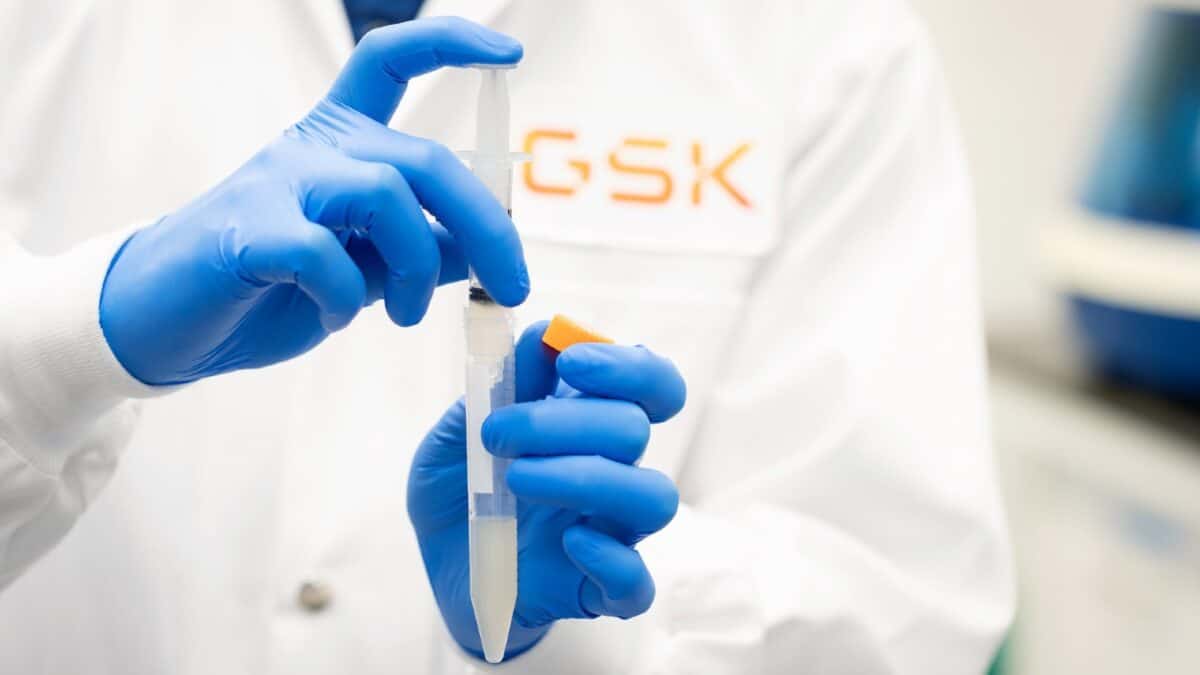Just over a year ago, I ran the rule over GSK (LSE: GSK) shares. They looked very cheap and were offering a growing dividend.
However, I chose instead to invest in FTSE 100 pharmaceutical peer AstraZeneca due to its stronger growth prospects and deeper pipeline of potential blockbusters. I don’t regret that decision, as Astra stock’s up 11% over the past year versus GSK’s 10% decline.
But GSK shares still look cheap and offer a 4% dividend yield. So should I buy some this time? Let’s dig in.
Solid 2024 results
GSK specialises in vaccines and medicines in areas such as HIV, oncology (cancer), respiratory diseases, and immunology. Last year, revenue grew 7% at constant exchange rates to £31.4bn.
Speciality medicines sales rose 19%, while HIV treatments grew 13% and oncology sales surged 98%.
General medicines also grew 6%, supported by a notable 27% increase in Trelegy sales (a once-daily inhaler to treat COPD and asthma).
Unfortunately, vaccine revenue fell 4%, with a sharp 51% drop in Arexvy sales. Arexvy is GSK’s jab for RSV, a respiratory virus that can be serious for infants and older adults. However, the US has limited it to those aged 75+ and at-risk individuals aged 60-74.
Despite the top-line growth, reported earnings per share (EPS) dropped 40%, largely due to a £1.8bn charge related to the settlement of Zantac litigation. Excluding this and declining Covid vaccine sales, core EPS jumped 10% to 159.3p.
The good news for GSK shareholders is that 93% of Zantac cases in US states have now been settled. While further lawsuits are pending, it appears the financial damage is nowhere near as bad as first feared.
Naturally, litigation is a key risk for GSK and the wider pharmaceutical industry, as are failed clinical trials.
Valuation
GSK hiked the dividend 5.2% last year to 61p per share. For 2025, it expects to pay 64p per share, which translates into a forward-looking dividend yield of about 4.3%. Forecasts show the payment very well covered by expected earnings, though of course dividends aren’t guaranteed.
Meanwhile, the stock still looks cheap, trading at just 8.9 times this year’s forecast earnings. That’s significantly less than AstraZeneca (16.8), though its larger peer is growing faster and has better margins.
GSK also announced a £2bn share buyback programme that will be implemented over the next 18 months. So that’s a big positive here, especially while the shares are trading cheaply.
My decision
The drugmaker expects to grow sales 3%-5% this year, with core EPS growth of 6%-8%, including the expected benefit from the share buyback programme.
Looking further ahead, it has increased its 2031 sales outlook to at least £40bn, up from £38bn. According to my calculations, £40bn would represent a compound annual growth rate (CAGR) of about 3.5%.
Admittedly, earnings are set to grow faster, likely supporting a rising dividend. But the long-term revenue growth outlook doesn’t really excite me.
Moreover, I already have quite a bit of healthcare exposure in my portfolio through AstraZeneca and Novo Nordisk, the maker of Ozempic. With the new US administration signalling a shift in healthcare policies, especially around vaccines (GSK’s strong suit), I’m cautious about adding to the sector.
Therefore, I’m not going to buy GSK shares at £15, despite the apparent value on offer.
This post was originally published on Motley Fool



